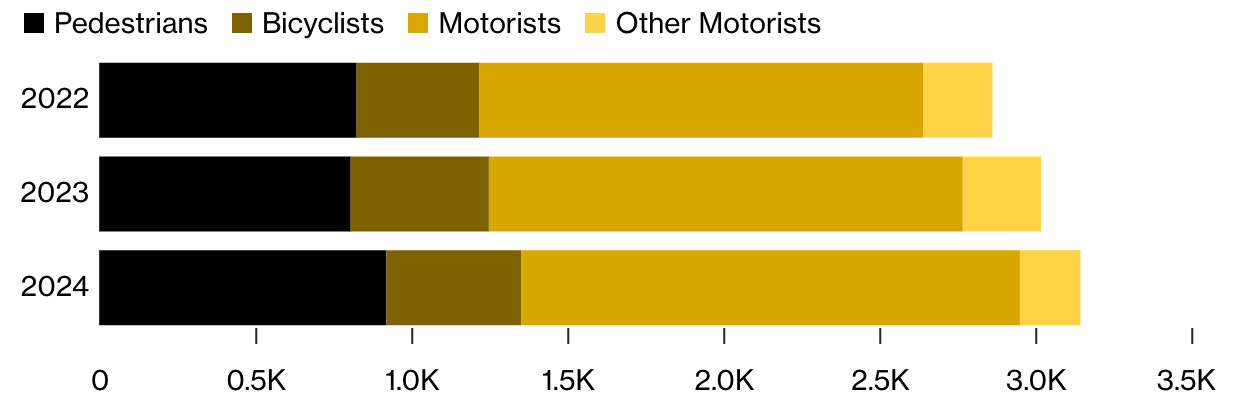North Carolina Emerges As New Drone Delivery Hub With DoorDash + Wing Launch
Exploring the exurban geography powering aerial economics
DoorDash and Wing are expanding their partnership, bring drone-powered food delivery to the southern exurbs of Charlotte, North Carolina. This builds off previous launches in Australia, parts of Southwest Virginia, and near Dallas.
Residents near the The Arboretum Shopping Center in south Charlotte browsing the DoorDash app will notice a “Drone” icon on the app; tapping that will let them browse restaurants eligible for aerial delivery. Orders are then loaded up at a hub, before being flown at 65 miles per hour and lowered via winch to the customer; deliveries take about 15 minutes.
Why Charlotte?
The “first in flight” state has made a number of regulatory and policy changes that make it as drone-friendly as Virginia and Texas. NC has pre-cleared the feds’ required environmental impact review. Local participation in the FAA’s Integration Pilot Program (IPP) and then the BEYOND Program enabled advanced BVLOS (Beyond Visual Line of Sight) testing under controlled conditions. State legislators have also passed laws preempting the ability of cities to regulate or restrict drone deliveries.
But I would argue that geography, more than policy, is driving this launch. The neighborhood surrounding the mall is, for lack of a better description, an urbanist’s nightmare: there are no sidewalks, just endless cul-de-sacs; the road layout winds circuitously around golf courses and highways; transit service is scant. If you wanted to hit the mall for a taste of Panera Bread or Curry Junction, a trip that’s sub-one-mile as the crow (or drone) flies would take you about three and a half by foot or car. That means the economics of traditional courier-powered delivery, or even sidewalk bots, don’t work. But flying over the Cedarwood Country Club might just do the trick!
The zip codes surrounding the mall cum drone hub have a density of around 2,000 people per square mile — that’s quite low, but it’s also rather common for the subdivisions that have cropped up across the southeastern United States over the past few decades. (The Arboretum Shopping Center opened in 1989.)
Out on the poly-centric West Coast, “suburbs” tend to be high-density, working more as interlinked secondary nodes with their own centers of gravity. On the East Coast and in the Midwest, the ‘burbs are lower density and more residential, but often organized around the bones of old commuter rail lines. As drone delivery continues to take off, expect to see it really boom in the especially sprawling new neighborhoods of the sunbelt.
For more on Wing and DoorDash’s deployment, watch their top leadership discuss the partnership at this Curbivore 2025 replay.
ADVERTISE ON & JOIN OUR PODCAST
Have you heard? Our hit podcast is back on the air!
Combined with the reach of Zag Daily, Zag Talk is the most widely distributed podcast in the new mobility space, with each episode hitting an audience of 62K+ industry leaders.
Reach out to view our media kit and get your brand on the show.
HOT INDUSTRY NEWS & GOSSIP
Shares Lyft-ed: Lyft posted strong Q1 results, with revenue up 14% YoY to $1.45 billion and net income swinging positive. Combined with announced share buybacks, the company’s stock surged 10%.
I’m walkin’ he’ah! Transportation-related injuries in New York City are on the rise, as the city falls behind on its Vision Zero plans. From 2022 to 2024, serious injuries from vehicle crashes climbed 10%, with pedestrian injuries up 12% , motorist injuries rising 12% and bicyclist injuries climbing 10%.
Maybe congestion pricing will fix things? While NYC politicos have dragged their feet on traffic calming measures, congestion pricing — now in its fifth month of operations — looks to be working as intended: improving traffic flow and bringing in new funding for the MTA. Even business owners seem to be coming around to its benefits. One thing that remains to be seen: faster traffic may end up perversely making car crashes deadlier.
Carsharing comes to the IE: UC Riverside, CARB and MDO Carshare are teaming up to launch Riverside Clean Air Carshare, featuring 13 hydrogen-powered Toyota Mirais. The program is funded by a $1.5 million grant, which seems like a lot, given that Toyota has been basically giving away those hydrogen cars. Either they’re also building out a new fueling depot, or they better be hiring a boatload of researchers as well?
Get in the pool, every day? At its Go-Get event, Uber announced a number of new features that have the potential to really green up ridehailing. Route Share basically turns your Uber Pool into a bus, running every 20 minutes along busy corridors during weekday commute hours with up to three passengers, at prices 50% lower than UberX. Meanwhile, Ride Passes lets users commit to the mode, locking in additional savings by pre-buying trips.
Goodbye green world: House Republicans have released their proposed budget, axing all sorts of useful programs in their quest to offset tax cut for the wealthy. On the transport front, the EV tax credit would phase out this year, with smaller volume OEMs clinging on until 2026. Used EVs and charging subsidies are gone as well, and funding for clean energy production will wind down. While funding for clean transport fuels is actually extended, changes to its legalese would actually make it more feasible for projects with questionable emissions impacts to qualify.
Grab a Gojek? Southeast Asia’s Grab reported quarterly earnings, with delivery and ridehailing GMV up 16% YoY to $4.93 billion and revenue growth beating analyst expectations, coming in up 18% to $773M. The Singaporean company is also pushing ahead with plans to acquire Indonesia’s GoTo / Gojek for about $7B, with the deal set to close in Q2.
A few good links: VC funding for AVs falls. 17 states suing Feds to release EV charging funds. GM sangs Aurora co-founder for new Chief Product Officer role. American VCs set their eyes on European defense-tech. Waymo starts mapping Boston’s winding roads. Popwheels opens NYC e-bike battery swapping hub. Shanghai lets transit riders design their own bus routes. South Korea delays decision that might actually make Google Maps usable in their country. Bain Capital Ventures backs Pronto: Indian on-demand cleaning service. Uber partners with iFood. DC proposes legislation for e-bike / scooter battery standards. Autolane intros OpenCurb OS, a curbside “operating system” for AV deliveries and ridehailing.
Until next week!
- Jonah Bliss & The Curbivore Crew





